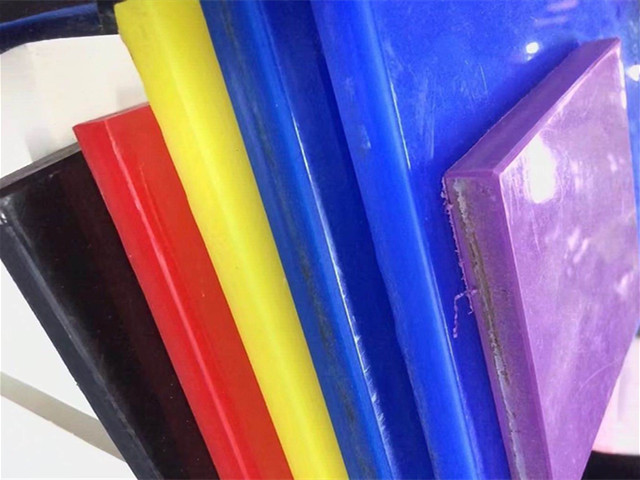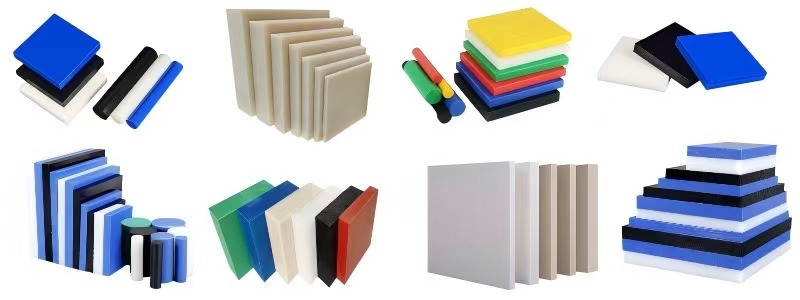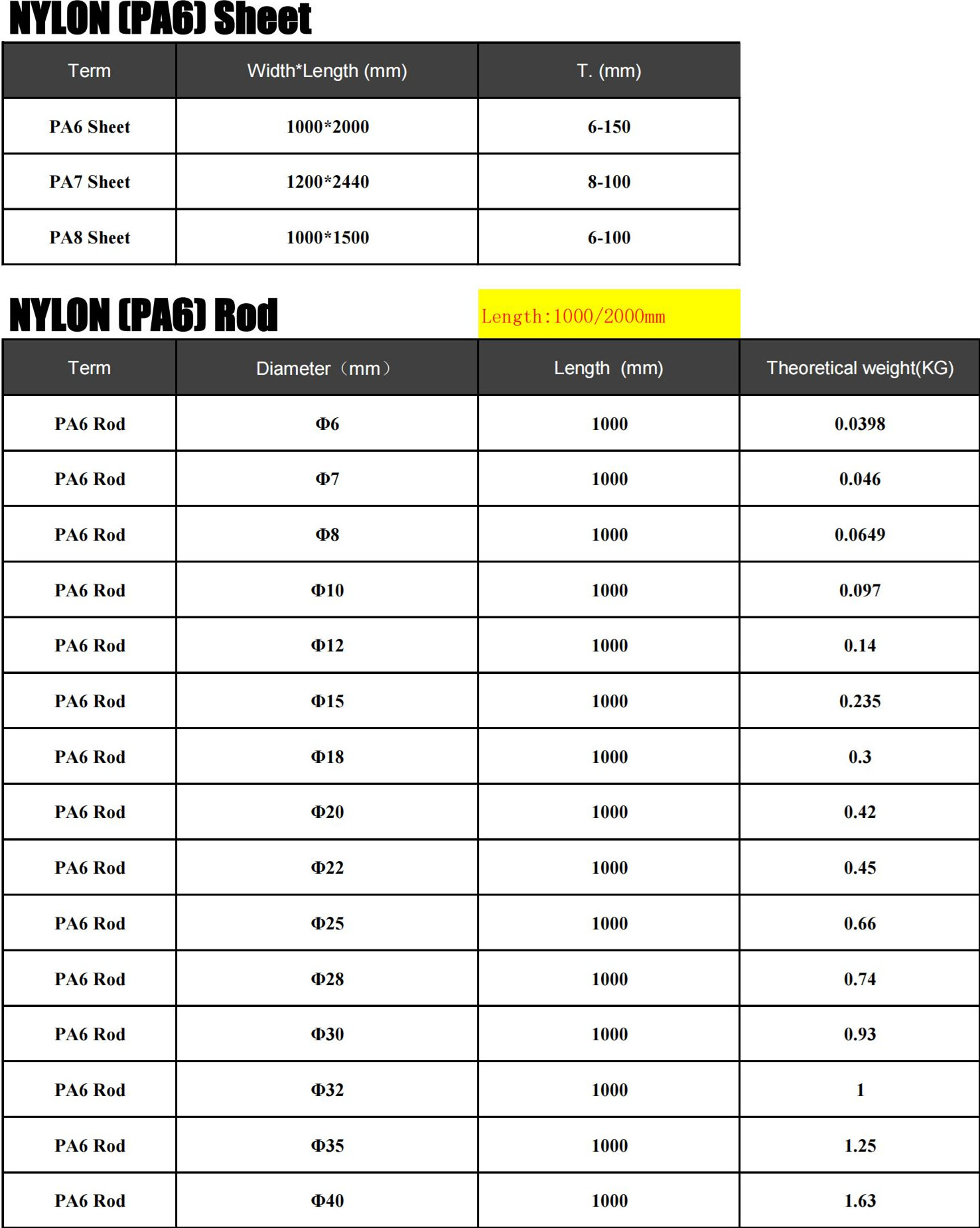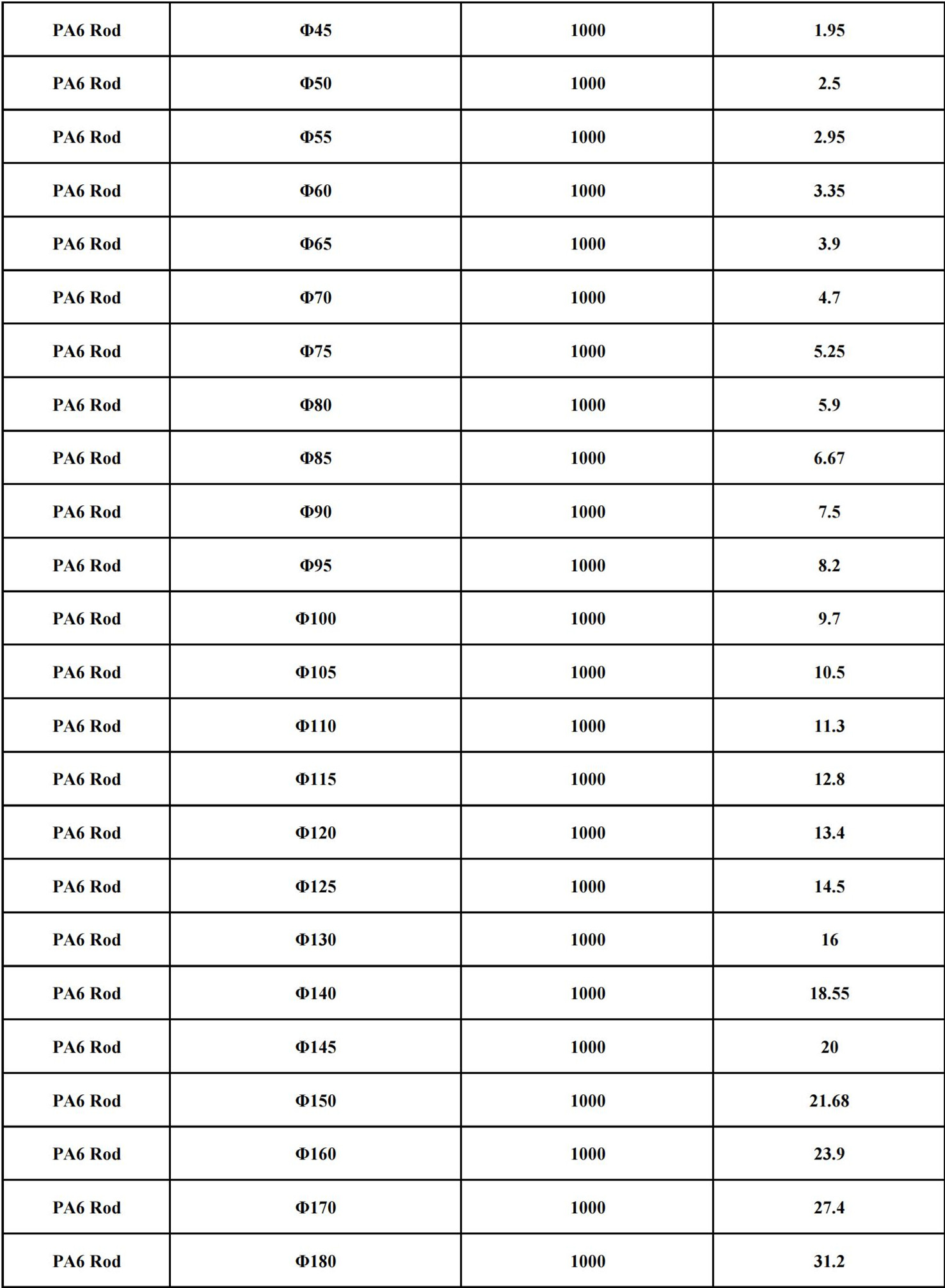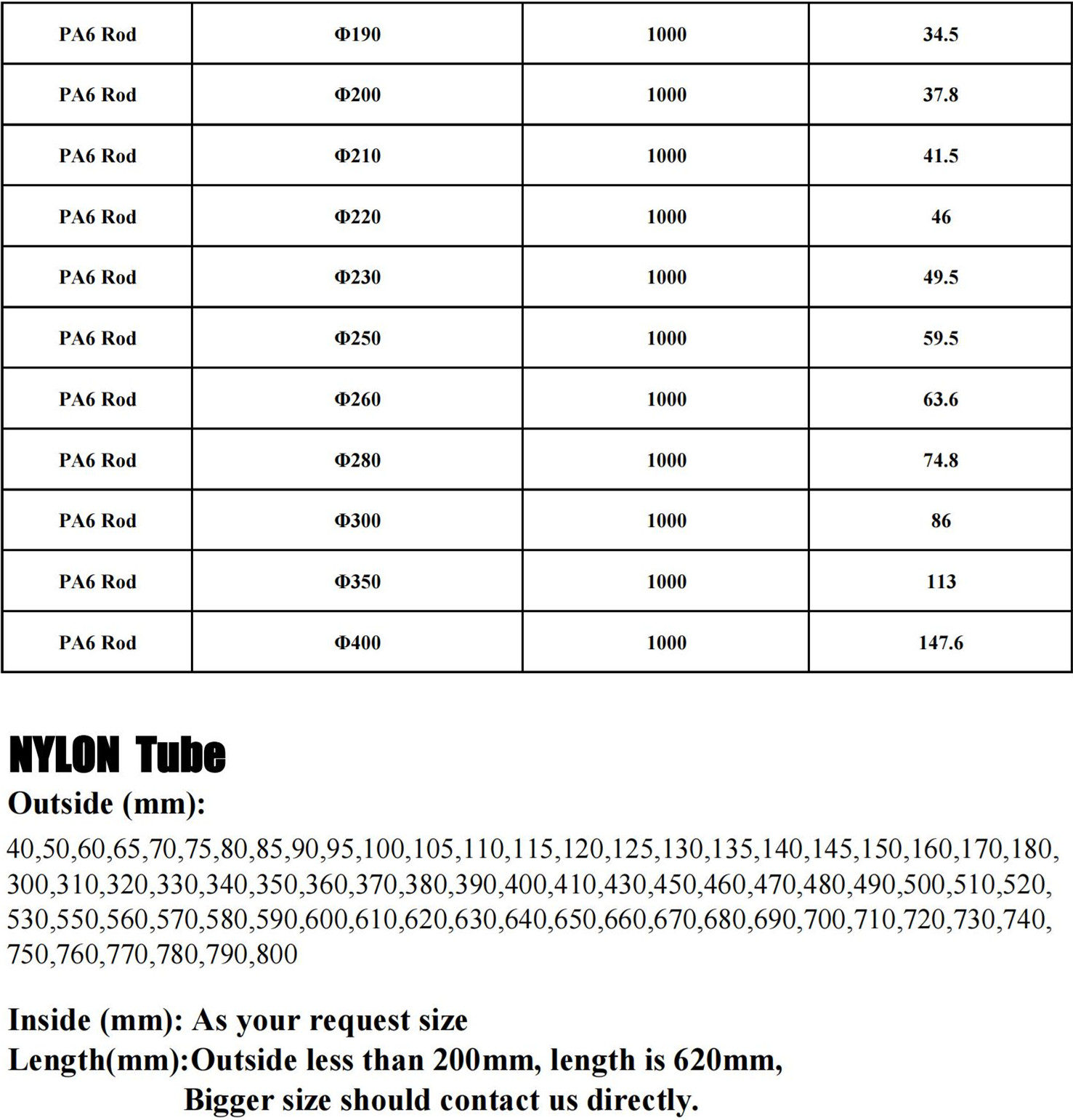Introduction to Nylon Sheets
Nylon sheets are sheet-like engineering plastic profiles made primarily from nylon (polyamide, PA) through extrusion or casting processes. They possess excellent comprehensive properties and are one of the most commonly used and cost-effective plastic sheets in the industrial sector, widely applied in machinery, automotive, electronics, and other fields.
Core Characteristics
Nylon sheets exhibit the following outstanding properties:
| Characteristic |
Characteristic |
Advantages |
| High Strength and Toughness |
High mechanical strength and good impact resistance, capable of withstanding repeated impacts and loads. |
Can replace metals as structural components, suitable for load-bearing and impact-resistant applications. |
| Excellent Wear Resistance |
Low friction coefficient and self-lubricating properties, making it one of the recognized wear-resistant materials. |
Ideal for manufacturing parts subject to frequent friction, such as gears, bearings, and guides, with a long service life. |
| Good Chemical Resistance |
Resistant to common chemicals such as oils, gasoline, and alcohols. |
Suitable for working environments with oil stains or fuels, such as automotive and mechanical equipment. |
| Ease of Processing |
Can be easily shaped through machining methods like turning, milling, drilling, and sawing. |
Standard-sized nylon sheets can be processed into various complex-shaped custom parts based on requirements, offering high flexibility. |
| Low Friction Coefficient |
Operates with low noise and requires little or no lubrication. |
Suitable for oil-free lubrication or silent operation components. |
Limitations:
· Moisture Absorption: Nylon easily absorbs moisture, leading to changes in dimensions and properties (strength decreases, toughness increases). Precision applications require conditioning treatment.
· Limited Heat Resistance: The long-term service temperature typically does not exceed 80-120°C (varies by grade).
· Poor Resistance to Strong Acids and Bases: Not resistant to corrosion from strong acids and oxidizers.
Common Types (Grades)
Nylon sheets are primarily available in the following common types to meet different needs:
| Type (Grade) |
Key Features |
Applications |
| Nylon 6 (PA6) |
Good overall performance, high toughness, excellent impact strength, and easy processing. |
General-purpose grade, suitable for structural parts, gears, bushings, etc. |
| Nylon 66 (PA66) |
Higher strength, stiffness, and heat resistance than PA6, but slightly lower impact strength. |
Components requiring higher strength and rigidity, such as high-strength gears and bearings. |
| MC Nylon (Cast Nylon) |
Higher molecular weight, significantly superior strength, stiffness, wear resistance, and heat resistance compared to ordinary PA6. |
Large high-load components, such as large gears, shaft sleeves, and sliders. |
| MoS2-Filled Nylon (Oily Nylon) |
Added molybdenum disulfide to enhance hardness, stiffness, and wear resistance, with better self-lubricating effects. |
Friction parts under high load, low speed, or difficult-to-lubricate conditions. |
| Glass-Fiber Reinforced Nylon (PA+GF) |
Added glass fiber to significantly improve strength, stiffness, and heat resistance, reducing moisture absorption and thermal expansion. |
High-strength, heat-resistant structural parts, though wear resistance and toughness may slightly decrease. |
Typical Applications
Nylon sheets are widely used in the following fields:
1. Mechanical Equipment: Gears, bearings, guides, sliders, gaskets, seals, etc.
2. Automotive Industry: Door handles, shift bases, functional parts around engines, wear-resistant bushings.
3. Electronics and Electrical: Insulating brackets, cable ties, terminal blocks, appliance housings.
4. Textile Industry: Shuttles, bobbins, gears, connecting rods, and other wear-resistant parts.
5. Chemical Sector: Valves, seals, corrosion-resistant gaskets (for specific chemicals).
6. Daily Use Items: Ski bindings, zippers, faucet valve cores, tool handles.
Selection and Processing Considerations
· Material Selection: Choose the appropriate grade based on strength, wear resistance, heat resistance, and lubrication requirements (e.g., PA66 offers better heat resistance than PA6, while MC nylon provides higher load-bearing capacity).
· Moisture Treatment: For precision parts, pre-drying is required before processing, and conditioning treatment (e.g., hot water or oil boiling) is necessary after processing to stabilize dimensions.
· Machining Tips: Nylon's toughness can cause "tool deflection" during machining. It is recommended to use sharp tools, large rake angles, high speeds, and adequate cooling.
· Color: Typically available in natural (beige), white, or black, but other colors can be customized.
Nylon sheets are a cost-effective and processing-flexible engineering plastic material. They strike a good balance between strength, wear resistance, and fatigue resistance. Although they have limitations such as moisture absorption and limited heat resistance, selecting the appropriate grade and applying proper post-treatment enables them to successfully replace traditional materials like metals and wood. Widely used across various sectors from light to heavy industry, nylon sheets are indispensable basic materials in mechanical equipment.


